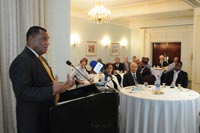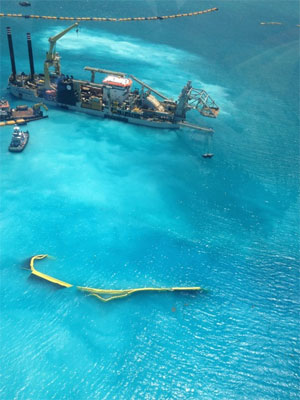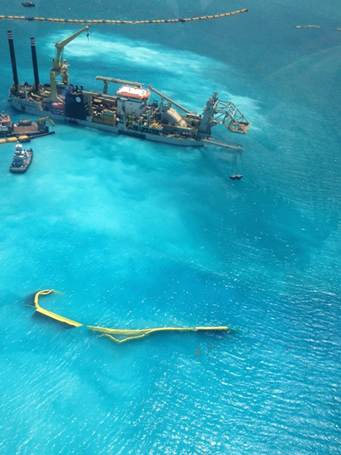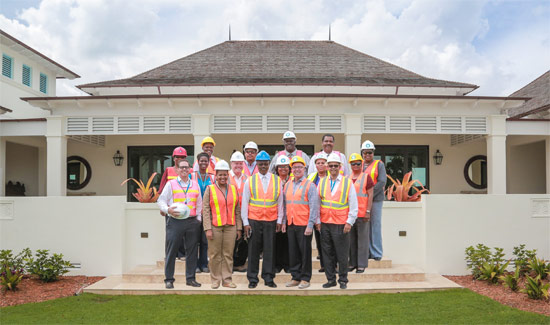 There is going to be full employment in Bimini, Prime Minister Perry G. Christie has predicted.
There is going to be full employment in Bimini, Prime Minister Perry G. Christie has predicted.
He was speaking at the Bahamas Economic Recovery Strategy Meeting Thursday, September 27, at the British Colonial Hilton.
Mr. Christie also questioned the need for government incentives as a means of encouraging investments in the country.
The meeting also heard from of Khaalis E. Rolle, Minister of State for Investments; Chester Cooper, president, Bahamas Chamber of Commerce, and Stuart Bowe of the Bahamas Hotel Association.
Topics discussed included:
The economic development strategy for The Bahamas;
A framework for an interim economic recovery strategy.
The Prime Minister underscored the theme: ‘Know your country’.
“It is an urgent need of governments to remember their obligations to far flung communities,” he said, “to ensure that the ethos of our country is protected and maintained, that characteristic spirit that binds us together one to the other as Bahamians.”
It becomes important from an economic point of view, he said, because “the opportunities that exist require you to have an advance knowledge of what is happening so you can be real participants in it and not look through the window of development as foreigners do it for you.”
For example, in Bimini, he said, there is a Capo development featuring hundreds of hotel rooms.
“Now we are talking about one of the world’s most powerful gaming companies coming for the casino as early as December,” said the Prime Minister.
“And once they say they are coming in some things have to happen. The airport runway has to go, there has to be more housing, and of course a couple hundred jobs will be created automatically.
“There is going to be full employment in Bimini. It is going to be like the San Salvador model.”
The government before 2002, he said, had spent $38 million to construct an international runway on San Salvador to accommodate Club Med at Columbus Isle.
“This major issue has come up that you must have a stake in: the extent to which governments must incentivise the survival of the hotel industry, the opening up of the industry in different places using your money.
“Don’t pretend it doesn’t exist. Millions and millions and millions of dollars of your money are spent on providing subsidies, even to Atlantis, even to Baha Mar.”
For example, when the Ingraham administration entertained Kerzner in the first $250 million development, he said, “they gave 45 per cent of the value of the development back to Kerzner in the form of concessions. In phase two they gave 38 per cent. This is millions of dollars in taxpayers money not to be collected.”
When it came to Kerzner phase three, Mr. Christie said he decided that he wanted to consult a major international company so he could further understand the basis of incentives and whether they were necessary.
“The study said no. At this stage you do not have to give Kerzner any incentives for the third phase which he said at the time would be $800 million,” said Mr. Christie.
When Kerzner decided then not to go ahead with the project, he said, “with my colleagues we negotiated on the basis of what Ingraham had done.
“We said we will give you 18 per cent for $800 million. He came back and said he would like to add another $200 million making it a $1 billion deal. We went up to 20 per cent. So we can show progress in how it came down.
“But the challenge to the government was, need it had to happen?
“This is a major issue you have to buy into. Your country is being run on the basis that governments are constantly confronted with the need to provide taxpayers money to incentivise the continuation of business in our country.”
He added: “Governments need to be insulated by the private sector in its thinking so that at least you could have this kind of feeling, that what you are doing, the country is a part of it and not just hostage to what we are deciding to do.”
By Gladstone Thurston
Bahamas Information Services



